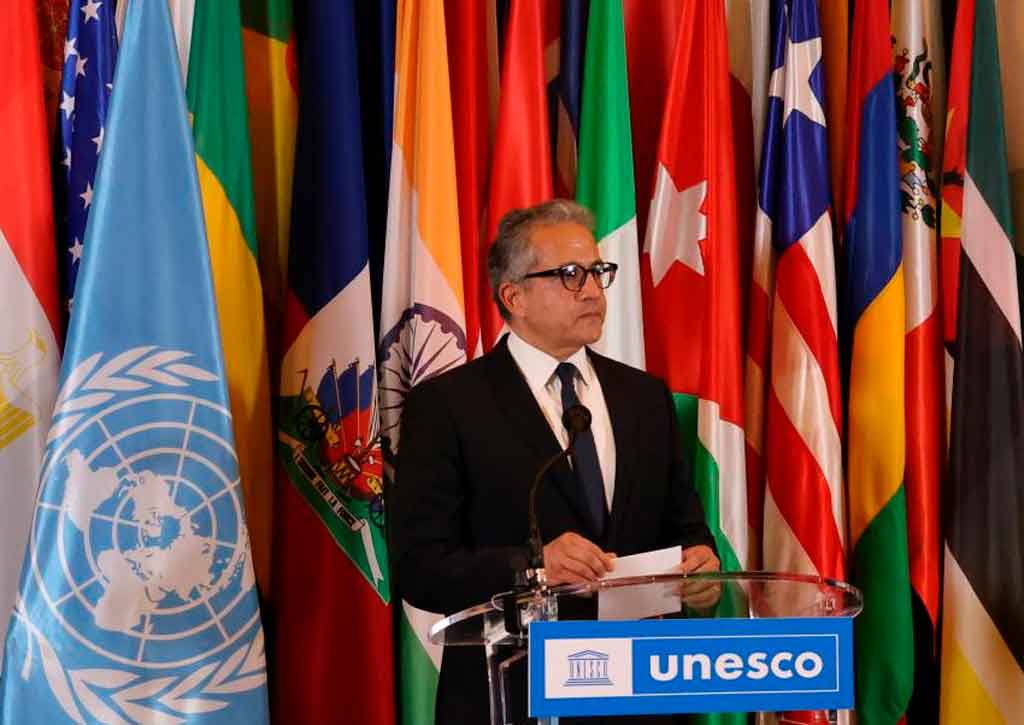
Havana, Oct. 7 – Egyptian Khaled Ahmed El-Enany, elected yesterday as the Secretary-General of UNESCO, envisions a human, inclusive, agile organization committed to climate and cultural justice, considering Cuba a symbol of those values.
The new head of the United Nations Educational, Scientific and Cultural Organization (UNESCO) for the 2025-2029 term focuses on listening, learning from local territories, and co-creating solutions, reaffirming multilateralism as an essential tool for peace and sustainable development.
In an exclusive interview with Prensa Latina last June, the Egyptian scholar described the global context as one of tension, fragmentation, and distrust, making it more urgent than ever to preserve spaces for dialogue, cooperation, and mutual understanding.
In this context, he sees UNESCO’s mission as promoting peace through education, science, culture, and information using a participatory approach. “UNESCO must be an organization for the people, built from local realities, listening to its member states and civil society, rather than imposing predefined agendas,” he said. The organization contributes to peace not through security mechanisms but by addressing conflict roots: ignorance, exclusion, and the loss of historical memory. He added that UNESCO “is one of the last spaces where countries can still dialogue.”
Cuba: A Symbol of UNESCO’s Spirit
The former Egyptian Minister of Tourism and Antiquities stated that Cuba embodies the organization's founding values: international solidarity (as seen through its medical brigades during the pandemic), cultural openness, and commitment to education and science.
He also valued Cuba’s role as a long-standing member state offering a distinctive voice, rich in culture, biodiversity, and climate change experience.
As a frontline nation in climate impact, Cuba provides concrete and scalable solutions like the Government’s “Life Task” Plan, which UNESCO should support, learn from, and replicate.
He highlighted the importance of cultural expressions such as rumba, bolero, and pan de yuca, which preserve identity and promote regional and international cooperation, noted the former Helwan University professor.
Proposals for a more effective UNESCO
The new leader sees the need to grant more autonomy to field offices and better link local experiences with global decisions.
This would ensure that island nations, especially Cuba, have greater presence in technical committees and decision-making, “as they are key actors on issues like oceans, climate, and cultural resilience.”
Regarding education, science, and culture, he valued them as pillars of the Sustainable Development Goals (SDGs), underlining they are not isolated sectors but transformative tools to achieve the UN 2030 Agenda.
“Education is the means to reach all goals, culture gives meaning to development, and science must be inclusive and connected to local needs,” he said.
In a fragmented world, UNESCO must keep bridges open through cultural, scientific, and educational exchange, even when other channels close, he emphasized. (Text and photo: PL)